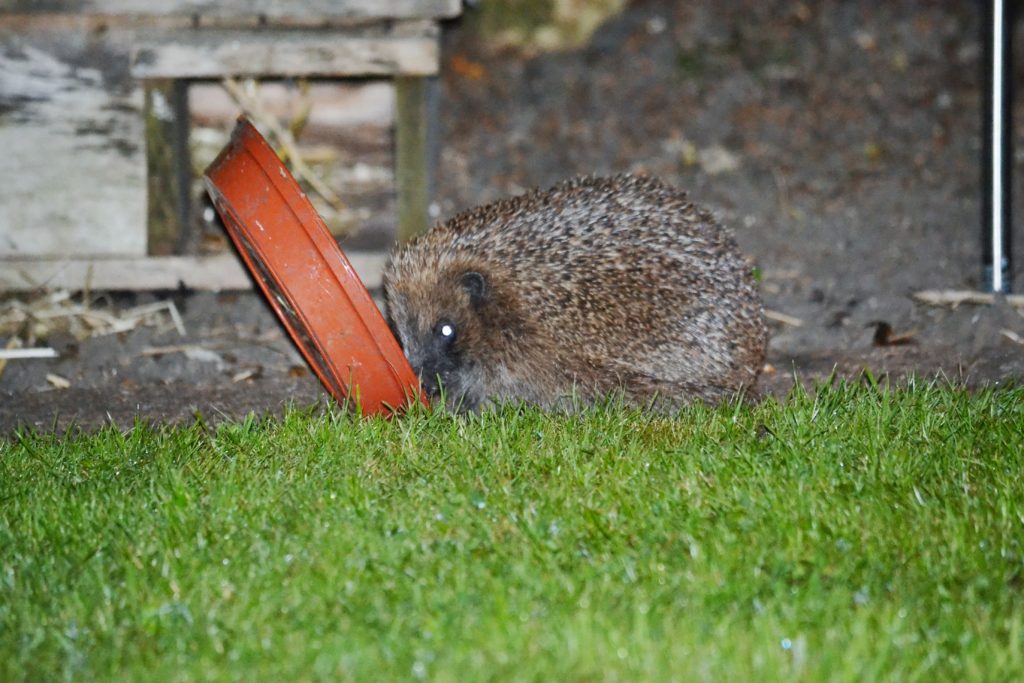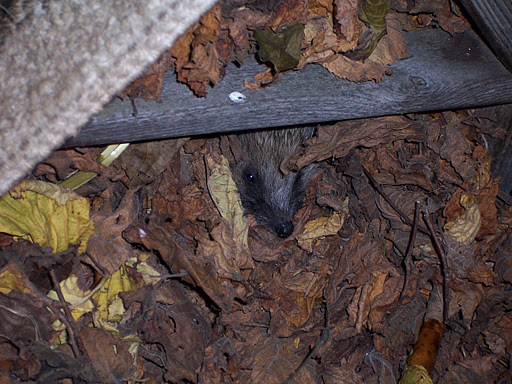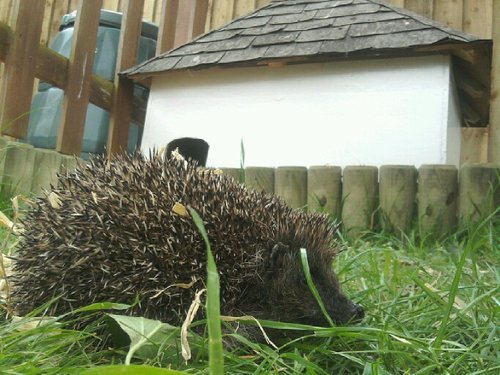Hyperphagia: what is it?
23rd September 2019
Overeating!
In a word, hyperphagia means overeating. As the summer draws to a close and the cold winter months approach, hedgehogs are preparing for hibernation by eating as much as they can find.

Hibernating hedgehogs
Contrary to popular belief, hibernation is not technically sleep. It’s a state known as torpor, where an animal reduces its metabolic activity. This means its temperature, breathing and other bodily processes are reduced, and it doesn’t move around like usual. The purpose of this is to conserve energy while food is in short supply. Hedgehogs can’t find enough slugs, worms and beetles during the winter to keep them going. Hibernation therefore allows a hedgehog to hit the pause button until the spring, when the weather is warmer and their food sources increase again.

This period of reduced activity means that hedgehogs burn energy a lot more slowly, but they still need plenty of it to last through the whole winter. Hedgehogs will rouse during milder weather in the winter to forage for food, but the most important time for feeding is now. Hedgehogs overeat during the autumn in order to increase their energy stores and build up fat reserves.
How can I help?
If you have any hedgehogs in your local area, now is a perfect time to help them out by putting some food in the garden, if you haven’t already. Hedgehogs can be fed any combination of meat-based wet dog or cat foods, as well as specially made food.
More information on what to feed your local hedgehogs can be found HERE.
Linking up gardens via hedgehog highways will allow our prickly friends to forage far and wide, as well as find a good spot for hibernating.
Putting a hedgehog house in your garden will give a hedgehog a safe place to hibernate.


